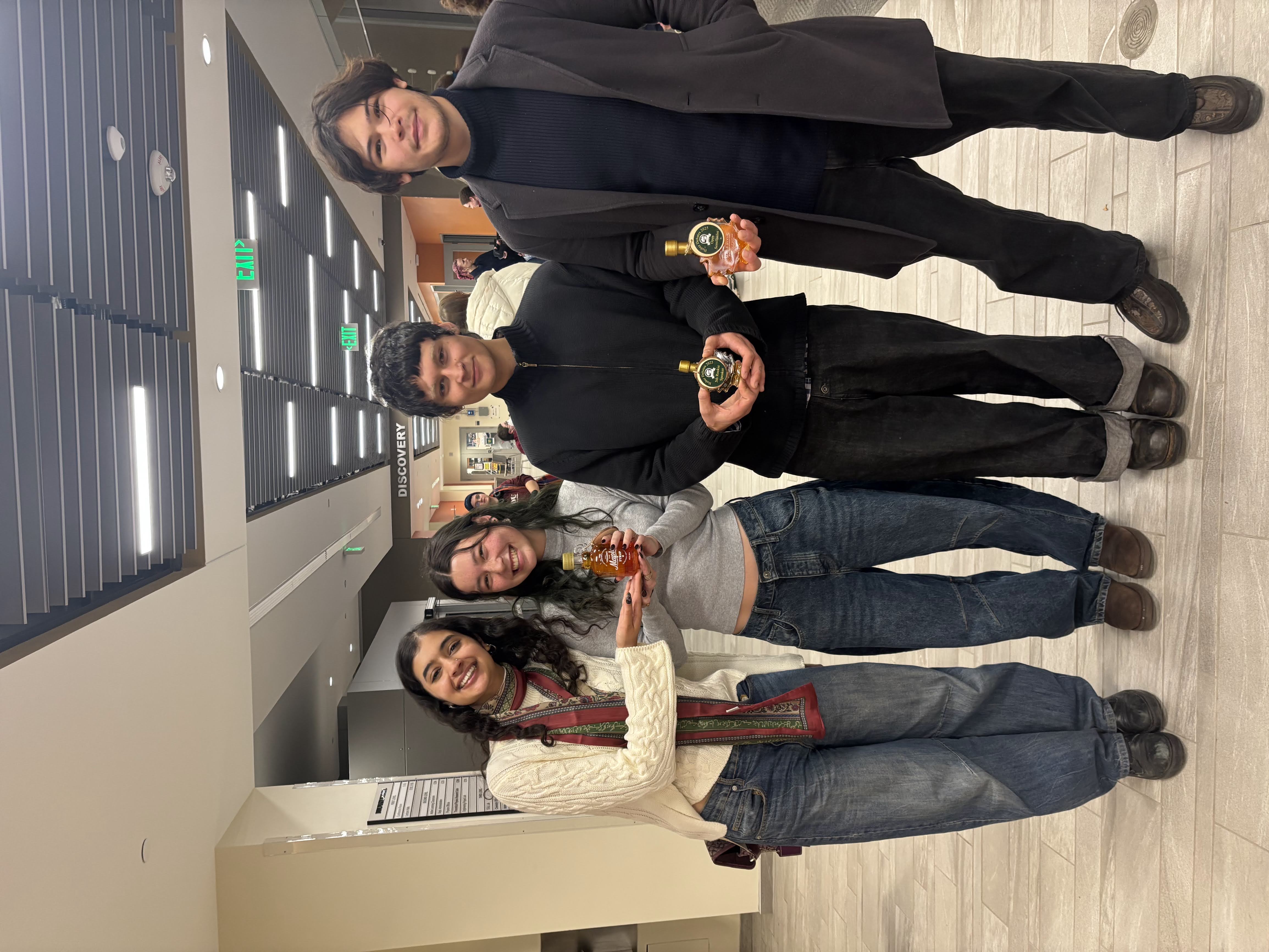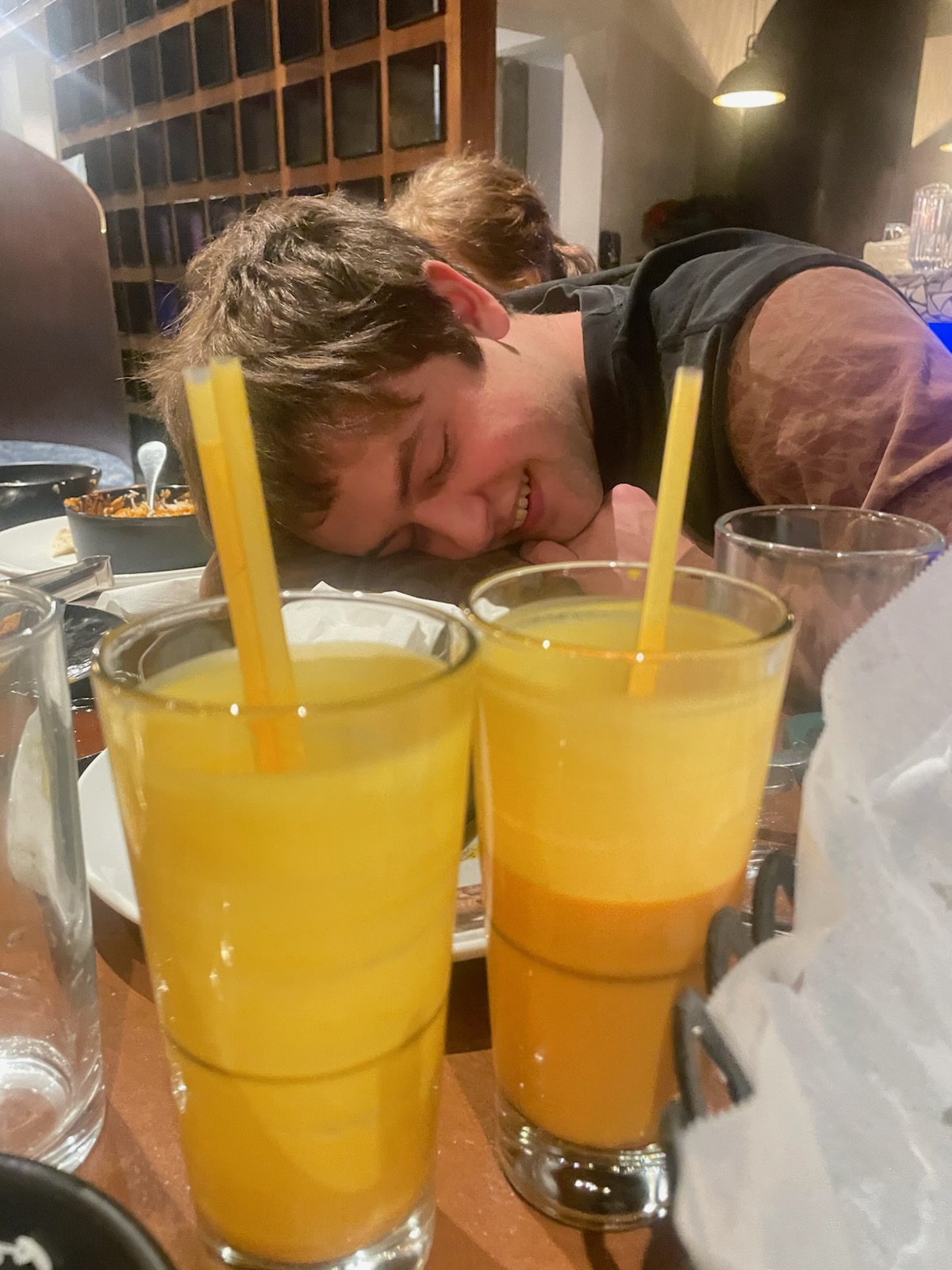Debate & Speech
The Colorado College Debate and Speech Team offers students an opportunity to compete nationally and internationally in British Parli (BP) Debate and/or 11 speech events. Students that join the team will acquire valuable tools to help navigate all forms of communication: public speaking, critical thinking, research, writing, conflict management, group work, networking, interviews, and more. Students interested in learning the associated skills but not competing, are welcome to attend practices.
2025-2026 Practice Schedule
Mondays, 1-3 PM
Wednesdays, 1-4 PM
All practices take place at 822 N. Weber St.
2025-2026 BP Debate Tournaments
Lewis & Clark College, Oct. 2025
- Semi-finalist, Open Debate: Zara Zafar and Sophia Murphy
- Semi-finalist, Open Debate: Paolo LoGerfo and Toby Meier
- Finalist, JV Debate: Landon Hartman and Henry Schmidt
- 5 Speaker Awards: Zara Zafar, Toby Meier, Paolo LoGerfo, Henry Schmidt, Landon Hartman
University of Vermont, Nov. 2025
- Finalist, Open Debate: Zara Zafar and Sophia Murphy
- Semi-finalist, Open Debate: Paolo LoGerfo and Toby Meier
- Rookie Speaker: Toby Meier
Seattle University, Dec. 2025
- Semi-finalist, Novice Debate: Lucas Cahow and Sandro Metreveli
Loyola University, Chicago, Feb. 2026
NAUDC, Bates College, March 2026
Colgate University, March 2026
Middlebury College, April 2026
UC Berkeley, April 2026
Debate Styles
British Parli
British Parliamentary (BP) consist of four teams, divided into two sides that speak for and against the round’s motion (topic). Motions can be policy-based, such as “This House should privatize prisons,” or philosophical, such as “This House prefers a cynical and pessimistic perception of democratic politics to an idealistic and optimistic one;” or value-based, such as “This House Would actively instill a value of disobeying authority in children.”
Due to the style's origins in British parliamentary procedure, the two sides are called the Government and the Opposition. Similarly, sides are known as benches, consisting of two teams - an opening team and a closing team. The motion is disclosed 15 minutes prior to the round. During this prep period, you may only speak to your partner. The Government opens the debate while the Opposition gives the final speech. The order of speeches alternates between the two benches, starting with the first government speaker, until all eight participants have spoken. Each speaker delivers one 7-minute speech. Teams compete against all other teams in the round, including against their own opening or closing team.
Speech Events
As a member of the American Forensic Association, our Speech Team competes in 11 events that range in style and format.
Limited Prep:
- Extemporaneous. Contestants will be given three topics in the general area of current event, choose one, and have 30 minutes to prepare a speech that is the original work of the student. Maximum time limit for the speech is 7 minutes. Limited notes are permitted. Student will speak in listed order. Postings of topics will be staggered.
- Impromptu. An impromptu speech, substantive in nature, with topic selections varied by round and by section. Topics will be derived from quotations. Speakers will have a total of 7 minutes for both preparation and speaking. Timing commences with the acceptance of the topics sheet.
Platform:
- Informative. An original, factual speech by the student on a realist subject to fulfill the general aim to inform the audience. Audio-visual aids may or may not be used to supplement and reinforce the message. Multiple sources should be used and cited in the development of the speech. Max time is 10 minutes.
- Persuasive. An original speech by the student designed to inspire, reinforce, or change the beliefs, attitudes, values or actions of the audience. Audio-visual aids may or may not be used to supplement and reinforce the message. Multiple sources should be used and cited in the development of the speech. Minimal notes are permitted. Maximum time limit is 10 minutes.
- After Dinner Speaking. An original, humorous speech by the student, designed to exhibit sound speech composition, thematic, coherence, direct communicative public speaking skills, and good taste. The speech should not resemble a night club act, an impersonation, or comic dialogue. Audio-visual aids may or may not be used to supplement and reinforced the message. Minimal notes are permitted. Maximum time limit is 10 minutes.
- Communication Analysis. An original speech by the student designed to offer an explanation and/or evaluation of a communication event such as a speech, speaker, movement, poem, poster, film, campaign, etc., through the use of rhetorical principles. Audio-visual aids may or may not be used to supplement and reinforce the message. Manuscripts are permitted. Maximum time limit is 10 minutes.
Interpretive:
- Dramatic. A cutting that represents one or more characters from a play or plays of literary merit. The focus of this event is on the development of characterization. This material may be drawn from stage, screen, or radio. Use of manuscript is required. Maximum time limit is 10 minutes including introduction.
- Dramatic Duo. A cutting from one or more texts of literary merit, humorous or serious, involving the portrayal of two or more characters presented by two individuals. The material may be drawn from any genre of literature. This is not an acting event; thus, no costumes, props, lighting, etc, are to be used. Presentation is from the manuscript and the focus should be off-stage and not to each other. Maximum time limit is 10 minutes including introduction.
- Program Oral Interpretation. A program of thematically-linked selections of literary merit, chosen from two or three recognized genres of competitive interpretation (prose/poetry/drama). A primary focus of this event should be on the development of the theme through the use of narrative/story, language, and/or characterization. A substantial portion of the total time must be devoted to each of the genres used in the program. Different genre means the material must appear in separate pieces of literature ( e.g., A poem included in a short story that appears only in that short story does not constitute a poetry genre.) Only one selection may be original. Use of manuscript is required. Maximum time limit is 10 minutes including introduction.
- Prose. An original or selections of prose material of literary merit, which may be drawn from more than one source. Focus of this event is on the development of the narrative/story. Play cuttings and poetry are prohibited. Use of manuscript is required. Max time is 10 minutes including introduction.
- Poetry. A selection or selections of poetry of literary merit, which may be drawn from more than one source. A primary focus of this event should be on the development of language. Play cuttings and prose works are prohibited. Use of manuscript is required. Maximum time limit is 10 minutes including introduction.


